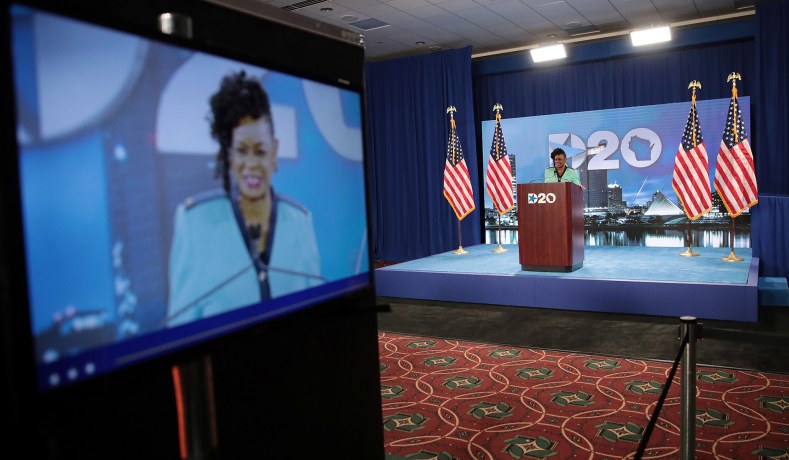
As someone who is — stifles groans — obligated by journalistic duties to watch all nights of the Democratic convention this week and the GOP convention next week, it is an argument against interest to tell you that very little of what happens at these conventions is likely to affect the outcome of the presidential race. Sometimes a convention features a star-making moment — Barack Obama’s address in 2004, Sarah Palin’s debut in 2008 — or a moment of genuine surprises and controversy, such as Ted Cruz’s telling the audience to “vote your conscience” in Cleveland in 2016. And both party’s nominees usually get a nice polling “bounce” out of four nights of de facto propaganda.
But those bounces almost always fade, and so even conventions that run smoothly or get rave reviews end up being marginally relevant footnotes in the overall story of the election. It’s easy to forget that by almost every measure, the 2016 Democratic convention in Philadelphia was a success. Television ratings were high, although more viewers tuned in for Trump’s speech than Hillary’s. Most of the speeches were well-received. Despite a bit of grumbling from Bernie Sanders’s most diehard supporters, the party appeared unified. While lots of protesters showed up, only 11 were arrested.
On August 7, 2016 — ten days after the Democratic convention ended — Harry Enten wrote at FiveThirtyEight:
Hillary Clinton’s polling surge is showing no signs of fading. She leads Donald Trump, on average, by about 7 percentage points in national polls, and is an 83-percent favorite to win on Nov. 8, according to our polls-only model. Our polls-plus model — which accounts for the “fundamentals,” as well as the tendency for a candidate’s numbers to temporarily rise after his or her convention — gives her a 76 percent chance. Those are her largest advantages since we launched our election forecasts back in June.
Yes, things looked wonderful for the Democrats in August, even more than a week after her convention address! But as you may recall, the November election did not go the way Hillary Clinton wanted. By the time voters cast their ballots — increasingly in October, as well as the first Tuesday in November — they’ve forgotten about the convention. Their perceptions of the candidates are shaped by more recent events.
Joe Biden walked into this week with a healthy lead in the polls, and he’s going to exit this week with a healthy lead in the polls. He may well be at his natural ceiling of support and not have much more room to grow in a deeply divided country, so maybe he won’t get much of a “bounce.”
Whatever happens in November, it is extremely unlikely that we will look back and think, “Yes, the convention in August was the turning point.”




